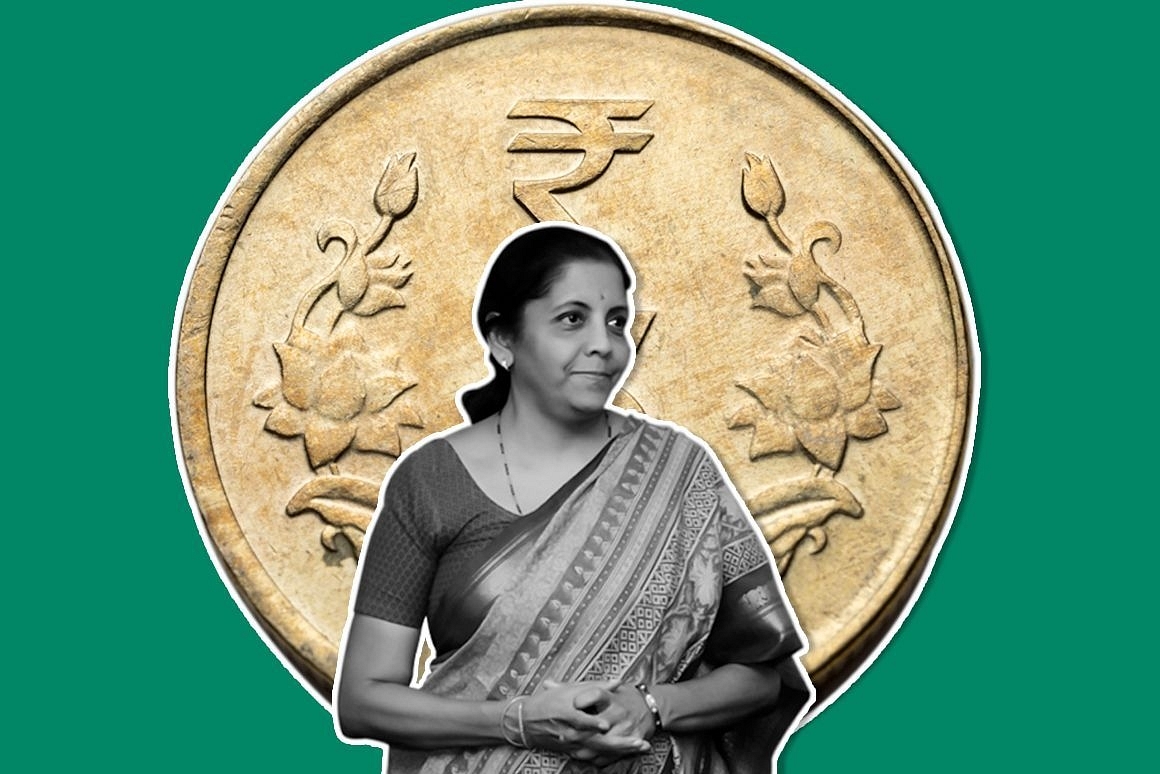Economy
Economic Survey 2020: Privatisation Is The New Welcome Pivot
- The Economic Survey has taken a hard right and this is a welcome departure from Nehruvian Socialism.

Finance Minister Nirmala Sitharaman.
Economic Surveys used to be a fairly technical document which was read by a narrow community of public policy enthusiasts and civil service aspirants. However, a growing interest in our economy has made it a much-awaited document over the last couple of years.
This increased focus on the Survey has resulted in it being viewed as a document that gives a general directional sense to policies. However, what parts of the Survey gets translated into policy ideas depend on the political leadership based on multiple factors.
The present Economic Survey is indeed one of the finest in a long time as it does have a very clear message that runs throughout the two volumes.
The message is clear, concise and consistent with an economic philosophy of promoting growth. The document has a subtle philosophy as it argues for the need to simplify the regulatory regime in order to promote wealth creation.
This theme is important, as, for decades, India has focussed on redistribution of income without giving adequate focus to growth.
We’ve perfected redistribution to the extent that poverty in India is down to mid-single digits by the extreme poverty line.
Therefore, now should be the time when we focus on brute growth and aim to get to a point where our potential growth rate is closer to 8 per cent rather than to 7.
This is the subtext in the Economic Survey that reiterates a lot of what many already know, but something prevents them from happening.
My explanation for this has been the lack of political capital and perhaps the next couple of years will show whether political capital can ensure we undertake some of these measures that are needed to break the sustained growth barrier of 8 per cent or more.
The other important aspect in the Economic Survey was to do with the need for privatisation.
While many of us believe that privatisation is required, fact is that there’s still a lot of confusion in the minds of millions of people on the positive implications of the same.
Many view it negatively in some parts of India and these factors can be a consideration for the slow pace of privatisation.
The Economic Survey, however, presents a detailed firm-level analysis that shows the benefits of privatisation to the government, to the company and of course to overall economic activity.
There is indeed a need to communicate better with those who oppose privatisation to ensure they realise the potential benefits of such a move.
If there is one ‘reform’ that didn’t happen in Modi 1.0, it was privatisation. The government seems to be going in for some big-ticket reforms in its second tenure.
After reading the Economic Survey, I was reminded of the famous quote by US President Ronald Raegan:
Our current Economic Survey is, perhaps, a manifestation of precisely this quote as it takes a hard pivot to the right. The Survey may not present a lot of new ideas, but it makes a case for a lot of them that are easy to build a consensus on.
It is the possibility of addressing a bulk of the issues highlighted in the Survey that make it for an important document. But an important point is that the Survey is not the only document that has taken such a view on the economy.
The recent corporate tax cuts combined with a series of statements made by both the Prime Minister and the Finance Minister on this issue which raises hope of a systematic change in our economic policies.
Perhaps, we will see a significant departure in our mindset and economic policies over this decade – and this change could be a defining moment in India’s economic history.
Support Swarajya's 50 Ground Reports Project & Sponsor A Story
Every general election Swarajya does a 50 ground reports project.
Aimed only at serious readers and those who appreciate the nuances of political undercurrents, the project provides a sense of India's electoral landscape. As you know, these reports are produced after considerable investment of travel, time and effort on the ground.
This time too we've kicked off the project in style and have covered over 30 constituencies already. If you're someone who appreciates such work and have enjoyed our coverage please consider sponsoring a ground report for just Rs 2999 to Rs 19,999 - it goes a long way in helping us produce more quality reportage.
You can also back this project by becoming a subscriber for as little as Rs 999 - so do click on this links and choose a plan that suits you and back us.
Click below to contribute.
Latest